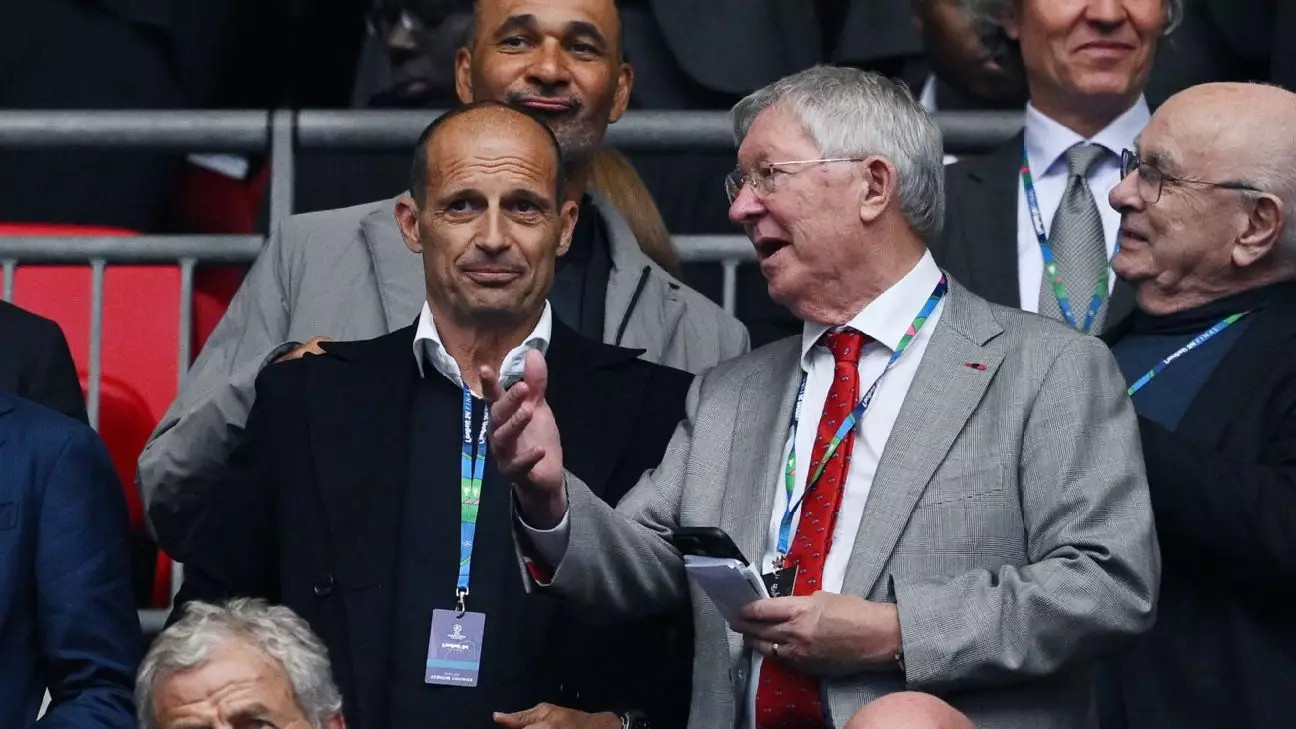Even over a decade after his tenure at the helm of Manchester United, Sir Alex Ferguson’s sentiments regarding his managerial career continue to resonate with poignancy. At 82, the legendary figure expressed a level of nostalgia that remains palpable, underscoring the deep connection he forged with the club and the sport itself. Reflecting on his departure in 2013, Ferguson has acknowledged that there are moments when he finds himself yearning for the thrill of managing high-stakes matches within the world’s most esteemed competitions.
Ferguson’s recollections reveal an emotional link between his past responsibilities and the electrifying atmosphere of significant European fixtures. During a recent interview with the BBC, he thoughtfully recounted attending the European final a year after retiring. This poignant experience underscored his statement to his late wife, Cathy, where he revealed, “This is what I miss—big games, the European games.” For Ferguson, these monumental events represent not just a reflection on his past but a reminder of the ambitions and challenges that defined his managerial life.
The legacy left by Ferguson is unparalleled in English football history. Under his guidance, Manchester United experienced an era of unprecedented success, securing 13 Premier League titles, two Champions League trophies, and numerous FA and League Cup victories. Yet, since his exit, the team has faced a tumultuous journey marked by instability and inconsistency. The managerial changes—with David Moyes, Louis van Gaal, Jose Mourinho, Ole Gunnar Solskjaer, and currently Erik ten Hag—highlight a prolonged struggle for the club to reclaim its former glory.
The juxtaposition between Ferguson’s illustrious past and the challenges faced by Manchester United post-retirement is stark. Fans and analysts alike have noted a visible decline in the club’s performance and silverware accumulation. Despite intermittent glimpses of revitalization under various managers, there remains a pervasive sense of longing for the era when victories were the norm, not the exception. Ferguson’s absence is felt not only on the pitch but also in the collective psyche of supporters who grew accustomed to triumph.
As Manchester United prepares for its upcoming match against Crystal Palace, there remains hope among fans for a future where the club can re-establish itself as a dominant force in football. Ferguson’s insights serve as a reminder of the passion and commitment that are essential to achieving success in a highly competitive environment. Though he may miss the thrill of managing, his enduring legacy and the values he instilled in the club will undoubtedly guide future endeavours.
Ferguson’s reflection on his time at Manchester United offers a glimpse into the soul of a man who dedicated his life to the sport. His thoughts serve as both a celebration of past glories and a poignant reminder of the challenges that lie ahead for his beloved club.

